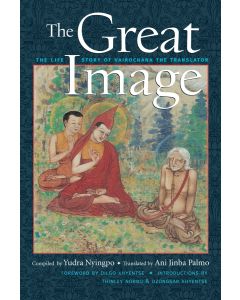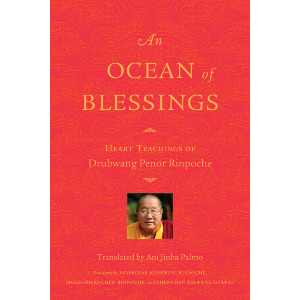We have excerpted the chapter “Samsara” from An Ocean of Blessings: Heart Teachings of Drubwang Penor Rinpoche here. This inspiring work is the first available collection of teachings by one of the most well-known Nyingmapa masters of the twentieth century, His Holiness Penor Rinpoche.
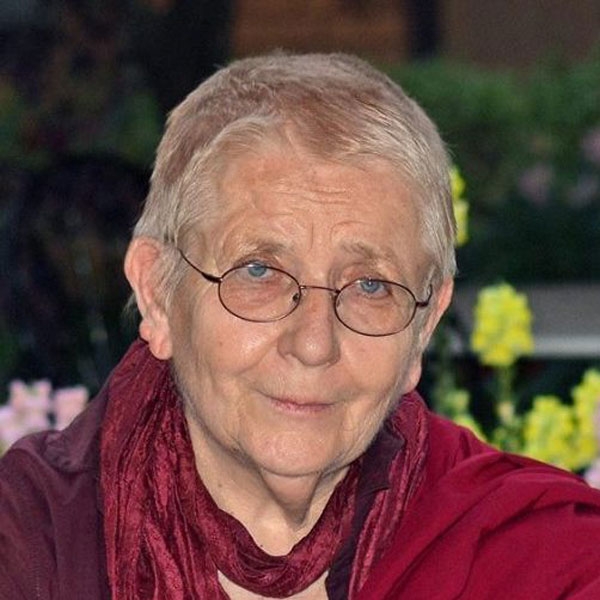

Ani Jinba Palmo
Ani Jinba Palmo, born and educated in Holland, is a nun in the Tibetan tradition. She was a student of and translator for Dilgo Khyentse Rinpoche until his death in 1991. She currently divides her time between retreats in Nepal and India and translating for Tibetan teachers in the United States and Europe.
Ani Jinba Palmo
-
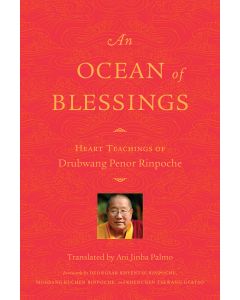 An Ocean of Blessings$24.95- Paperback
An Ocean of Blessings$24.95- PaperbackForeword by Dzongsar Jamyang Khyentse
Translated by Ani Jinba Palmo
By Penor Rinpoche -
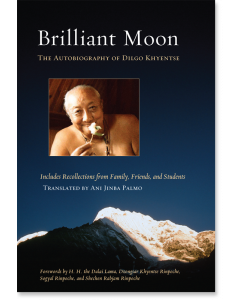 Brilliant Moon$39.95- Paperback
Brilliant Moon$39.95- PaperbackBy Dilgo Khyentse
Foreword by Sogyal Rinpoche
Foreword by Dzongsar Jamyang Khyentse
Translated by Ani Jinba Palmo
By Jamgon Mipham
Foreword by H.H. the Fourteenth Dalai Lama
GUIDES
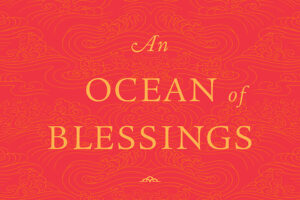
Samsara | An Excerpt from An Ocean of Blessings
Everyone in this world wants perfect comfort and happiness. Not a single being wants to suffer. If we exert ourselves, we may be able to create a comfortable situation, but no matter what temporary comfort and happiness we achieve through our efforts and hardships, it’s never steady or permanent. However, by practicing the Dharma, we can achieve the unsurpassed, ultimate bliss that liberates all from the sufferings of samsara and leads to perfect happiness.
Having been born in this world, we are attached to samsara, and being constantly preoccupied with our day-to-day survival, we experience a lot of hardship as we try to gather the necessary resources to spend our life in comfort. And so the years pass without our really accomplishing anything of lasting value. If we succeed in doing something or acquire some knowledge, we feel very arrogant about it, and when we don’t succeed in doing what we wish, we worry about it day and night, and the stress of our worries makes us sick. Once we are sick, we focus on the illness, which only causes us to suffer even more. There is no benefit at all in being worried. It doesn’t accomplish anything, nor does it purify our obscurations. Worry also doesn’t help us acquire more wealth; it only increases our disturbing emotions and makes it that much more difficult for us to succeed. When our mind thinks too much, we accumulate a certain type of mental karma, and we’re so accustomed to it that we can’t stop worrying. Even when we know that worrying doesn’t help, we still can’t stop. So even though we need to engage in worldly jobs for the sake of our livelihood, we shouldn’t be attached to them, but should cut our grasping to them.
Of course, it’s important to take care of your finances and have some resources to support yourself, but you should not concentrate only on that. You should be satisfied with whatever you need for your livelihood and not keep amassing more and more. Remind yourself that between this life and your next, your next life is much more important. It’s nice to have a few material belongings, but it’s very rare for us to be content with what we have. Not only that, it’s also difficult to keep what we have. People keep making more and more money, yet never feel that they have enough. According to the Dharma, if we possess wealth, we need to know how to use it. It’s beneficial to have enough to support ourselves, not for pleasure’s sake but so that we can focus more intently on our Dharma practice. What we really need is the Dharma, not more wealth, so it is best to concentrate on Dharma practice and be content having just enough to live on. Just look at how animals manage to survive. For example, in Tibet there is an animal that looks like a squirrel. During the summer it collects dry leaves and lines an underground burrow with them. Then it collects just enough of a nutritious type of grass called dronma to last the winter. It doesn’t seek a fancy house or want more just for the sake of having more but is content with just what it needs to survive.
Nowadays, many Tibetans have the freedom to practice Dharma and are not tied down by a difficult financial situation like people in the West. In North America and Europe, you really need to have a job or you can’t support yourself, so it’s best not to waste your money but use it wisely. Many Tibetans go through a lot of trouble to get to the United States and to repay the debts they incurred in the process, and often they don’t even have proper visas or permits. Yet, in spite of all that, they still manage to find a job, save money to pay their debts, and send some home to support their families. Most Americans, however, are born with so many advantages that they don’t realize how fortunate they actually are. So please don’t waste your money—use it for Dharma practice.
During our entire life we have been involved in so many activities, but if you really think about it, the result of wealth and fame is only temporary; it doesn’t benefit our next life whatsoever but only causes negative karma. We may possess all the riches on earth, but when we die there is not so much as a blade of grass that we can take with us. On the other hand, our negative karma follows us like a shadow, even through the bardo after we die.
Now that you have obtained this precious human body that is so hard to find, try to make it meaningful by truly taking advantage of this rare opportunity. Worldly activities such as attaining high status, accumulating property and wealth, and so forth really have no benefit whatsoever, so please don’t waste this precious opportunity. We may command a retinue of thousands of attendants and soldiers, but at the time of death we have to go alone, and at that time the only thing that can help is our own Dharma practice. So, from now on, don’t get carried away by your thoughts and negative emotions but control and reduce them, supplicate the Three Jewels, and diligently apply yourself to your practice. I assure you that if you truly concentrate on your Dharma practice, it is possible to reach the highest levels of realization in this very lifetime, so you really don’t need to wander in samsara anymore. But sadly, we humans tend to look at the world upside down and neglect what’s most important, while perceiving trivial matters as the main purpose in life.
Once, when I was teaching in Taiwan, I told some students not to be attached to their jobs, but they said, “If we don’t do our work, then who will?” But Taiwan won’t come to a standstill just because a few people stop working. Actually, it’s good if samsara becomes empty; if all beings attain liberation, we don’t need samsara. We’ve been wandering here for countless lives and experience nothing but suffering. Our whole life is nothing but hardship and misery, but we still haven’t accomplished anything, and even though we may plan a happy and comfortable life with our family, when the time comes to retire we say to ourselves, “Now I’m done with my job, and I’m going to relax.” But instead, when we retire we worry about our savings, our health, and a thousand other things. We still hope that we can be happy and peaceful but end up dying without fulfilling our wishes, and often we experience a terminal illness that causes intense suffering. On the other hand, when bodhisattvas and realized masters die, it is always in a happy state of mind because they have attained freedom and are happy to go to the pure lands. They are not afraid but actually enjoy death.

